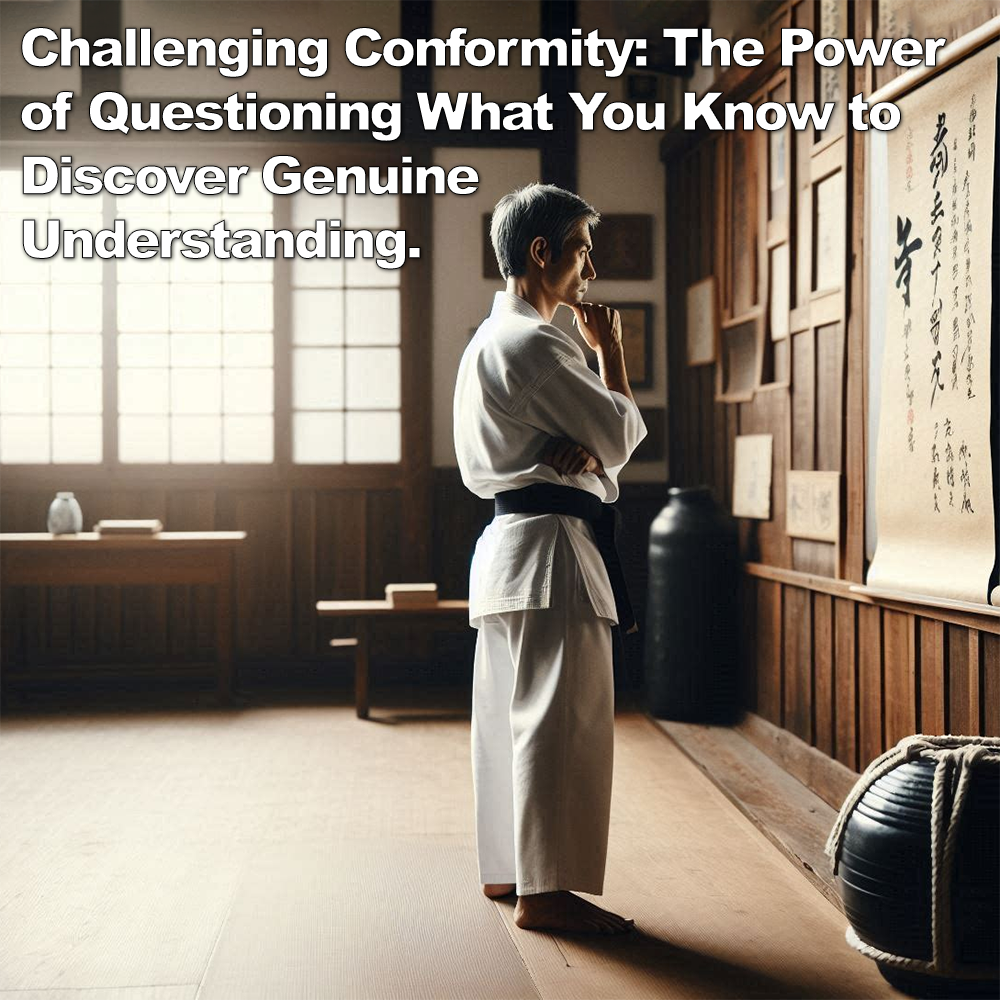
(Approx 2 minute 25 second read)
Recently, someone sent me a message with the abrupt opener, “Who are you?” – not the most polite way to start a conversation. After some back-and-forth, and after I pointed out the rudeness of his approach, I learned he was upset about a quote I had used in one of my articles.
.
He believed it was ‘his property’ because it came from his teacher, and he questioned my right to use it. There was no attribution or copyright, but it seems this person felt a deep sense of ownership over the words.
.
This kind of reaction isn’t new to me, and it always makes me wonder: why do some people have such fragile egos when it comes to knowledge?
.
It made me reflect on how some martial artists – and people in general – cling so tightly to what they know, or think they know, that they become closed off to new perspectives. This resistance can be especially strong when it comes to deeply ingrained teachings.
.
There are times when we wish to influence others and help them understand something we believe to be important. But no matter how hard we try, we cannot force people to comprehend or accept what we’re explaining to them. No matter how much we’d like to, we can’t force them to understand.
.
There are many ways to do something. For example, there are countless ways to interpret ‘bunkai’, principles and techniques – many ways to reach a goal. You just have to listen (or read) and be open to accepting something different. It’s not always about what you already know.
.
To deepen your understanding, you must accept that you may not have all the information, and that you don’t know everything. Of course, this can be difficult when new information challenges long-held beliefs. This is a big problem in karate. If your sensei has taught you something for years, it becomes almost set in stone. How many times have I heard, “I do it this way because my sensei told me and I’m not going to change for anyone”?
.
But just because it’s different doesn’t make it wrong. I’ve learned that the smallest shift in focus can lead to those “Aha!” moments that were right in front of you all along.
.
There’s a difference between the best you can do and the best way something can be done. Simply defaulting to what you know or how you do something doesn’t mean you’re doing it in the best, or most effective, way.
.
Unfortunately, many students in the martial arts tend to be conformists. Once they’ve reached a level of understanding they don’t depart from that, they simply follow their instructors, finding security in imitation. The result of this imitation is a dependent mind. Independent inquiry – which is essential for genuine understanding – is often not encouraged.
.
There are many instances where the dots just don’t connect. But when the conditions are right, and with a little nudging from someone or something, things fall into place, and you finally say, “Aha! How did I not see that before?”
.
The risk of learning something new is that you may have to change what you’re doing and what you think. But when you’ve reached a certain level of experience, you might resist change – you don’t want to lose everything you’ve gained.
.
However, embracing new insights doesn’t mean discarding what you know; it means enhancing it. Every new understanding adds depth to your existing knowledge, rather than erasing your past achievements.
.
Written by AC.
